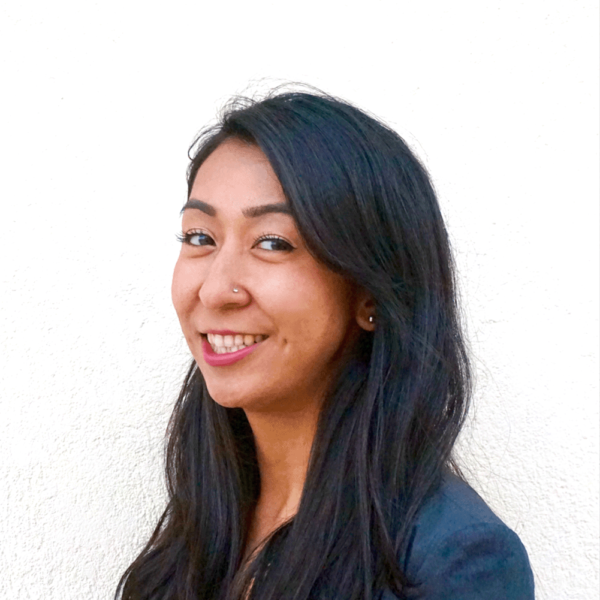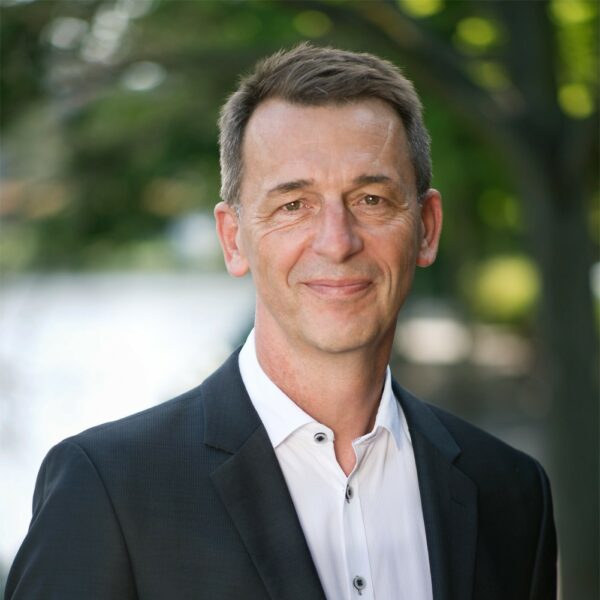Disrupt & Innovate
Inclusive Data as a Strategic Tool for Building Back Better After the Pandemic.

As the COVID-19 pandemic continues to deepen inequalities around the globe and threaten the overall progress of the Agenda 2030 for Sustainable Development, this year’s High Level Political Forum (HLPF) brought together contributors from diverse backgrounds and geographies to highlight different impacts of the COVID-19 pandemic across all Sustainable Development Goals (SDG) and reflect on the actions required to build back better from the pandemic.
On July 12, the Centre co-hosted a virtual side event at the 2022 HLPF together with the German Development Agency (GIZ), with the support of the United Nations Statistics Division (UNSD) to explore inclusive data practices in communities (which are mostly overlooked in high level policy discourses) as a strategic tool for building back better after the pandemic.
The insights from the speakers and panellists not only reaffirmed the fact that there is a massive lack of high quality and relevant data on Persons with Disability (PWD) and other marginalised groups, but the discussions further highlighted the important role Organisations of Persons with Disabilities (OPDs) and other Civil Society Organisations (CSOs) can play in filling the existing data gaps, especially during emergency situations like COVID 19. Through Community Driven Data (CDDs) and other forms of inclusive data, CSOs and OPDs help bring innovative perspectives on certain population and their needs, issues and trends.
Read reflections from the LNOB Partnership’s virtual side event at the 2022 HLPF

Chandani Lopez Peralta
Project Manager
International Civil Society Centre
Chandani joined the Centre as a Project Manager in May 2022. She supports the Leave No One Behind Partnership that promotes the collection and use of community-driven data to give voice and agency to marginalised communities. Prior to joining the Centre, Chandani headed communications and outreach at TolaData. In addition, Chandani has coordinated many projects for local and international NGOs, working closely with refugees, individuals with disabilities and other marginalised groups in Nepal, Germany and the US. Chandani holds a master’s degree in International Development and Social Change from Clark University, USA and a B.Sc. in Mass Communications with an emphasis on PR and Advertising from Minnesota State University Moorhead
Leading in TUNA times

Six months into the year, you surely had your share of physical meetings and conferences yet. How did they feel? A combination of personal warmth, anxiety, confusion, and an irrational sense of ‘newness’? At least that’s how it felt when 17 of the Centre’s member CEOs met in person for their annual ‘Vision Works’ retreat in Switzerland, last month.
There’s much to say about the re-discovery of informal conversations and building personal networks in such conferences. Besides the benefits of peer-to-peer exchanges for one’s mental health, one also wonders how today’s leadership challenges in a complex world have suffered from the two years of minimised personal meeting opportunities.
The complexities of our environment have been described in more recent debates as characterised by Turbulence, Uncertainty, Novelty and Ambiguity (TUNA). And the difference to previous futures narratives being the acknowledgement that ‘we don’t know anymore, what we don’t know’.
Leading in a ‘tuna world’ requires specific approaches and talents. The steering ‘on sight’, the prioritisation of values over outputs, the ability to use scenarios, increase diversity, the flexibility to embrace emergent change with a long-term view, change direction and unlearn if needed. And it also asks for personal credibility, empathy, approachability, and open discourse – all more difficult to maintain in virtual communication.
So now that we have moved into a ‘new normal’ mode, trying to combine the best of virtual and personal, and being faced with a world that has changed again (and keeps changing), how do we talk to each other? And how do civil society leaders steer their organisations, support their staff, and provide confidence and direction, particularly as there is a continued struggle with overload, the pace of change, change fatigue, and exhaustion and tiredness of the workforce (not least because of the COVID impacts).
And how do you lead a new generation of colleagues, and ensure new leadership takes up responsibilities? How do you intensify cross-cutting ethical ambitions, and focus on values, mandates and purpose when operational demands still dominate the work?
Compare these challenges with the latest results of the Interaction survey of member CEOs, confirming the high pace and significant depth of changes in the environment, the business models, operating models and programme priorities. Many organisations shifting power to the global South, yet how do you ensure alignment by letting go of overly centralised management?
Looking at the high relevance of megatrends like climate change, power shift and digitalisation (including the navigation of cybersecurity), we find that civil society organisations involved in development cooperation and humanitarian aid, even if they are urgently needed in the global discourse around those trends, are often still in reaction/crisis mode, partly constrained by restrictive donor policies, operational challenges, homegrown problems and colonial legacy.
CSO leaders grapple with complexities and interconnectedness, and the scale of the crises is challenging established management and governance practices.
When we met in Switzerland, some promising ideas were developed around authenticity in the non-profit world, increased ambition around our mandates, new forms of political communication, more focus on values and the tackling of double standards that are being seen around us – whether it is the special treatment of the crisis in and around Ukraine, or the need to accelerate decolonisation in the sector.
The growing responsibilities (and opportunities) for civil society organisations became more evident in this space. We need more innovative and bold actions to take shape. It is no longer enough to set up intentions or keep our spirit. We must collaborate and implement these ideas to rise to the “tuna” challenge.

Wolfgang Jamann
Executive Director
International Civil Society Centre
Dr. Wolfgang Jamann is Executive Director of the International Civil Society Centre. Until January 2018 he was Secretary General and CEO of CARE International (Geneva). Before that he led NGO Deutsche Welthungerhilfe and the Alliance 2015, a partnership of 7 European aid organisations. From 2004-2009 he was CEO & Board member of CARE Deutschland-Luxemburg and President of the CARE Foundation. Previously, he worked for World Vision International as a regional representative in East Africa (Kenya) & Head of Humanitarian Assistance at WV Germany. After his Ph.D. dissertation in 1990 he started his career in development work at the German Foundation for International Development, later for the UNDP in Zambia. As a researcher and academic, he has published books and articles on East & Southeast Asia contributing to international studies on complex humanitarian emergencies and conflict management.
Community-Driven Data as a Tool to Foster Equal Rights and Non-Discrimination

The global pandemic has further exacerbated the long-standing structural inequalities and governance weaknesses around the world. As a result, an increasing number of communities are falling further behind the ambitious plan of the Sustainable Development Goals (SDGs) to “leave no one behind.” From 30 May to 3 June 2022, this year’s World Justice Forum brought together hundreds of leaders and experts from a broad spectrum of disciplines and geographies in the Hague to talk about these challenges and find effective measures to build fairer and healthier communities
Michelle Bachelet, High Commissioner for Human Rights, UN echoed:
Justice means equality. Justice means fairness. Justice means accountability, fighting impunity and offering redress. It also means leaving no one behind and leaving no one behind means involving marginalised groups in decision making.
Read reflections from the LNOB Partnership’s working session at WJF

Chandani Lopez Peralta
Project Manager
International Civil Society Centre
Chandani joined the Centre as a Project Manager in May 2022. She supports the Leave No One Behind Partnership that promotes the collection and use of community-driven data to give voice and agency to marginalised communities. Prior to joining the Centre, Chandani headed communications and outreach at TolaData. In addition, Chandani has coordinated many projects for local and international NGOs, working closely with refugees, individuals with disabilities and other marginalised groups in Nepal, Germany and the US. Chandani holds a master’s degree in International Development and Social Change from Clark University, USA and a B.Sc. in Mass Communications with an emphasis on PR and Advertising from Minnesota State University Moorhead









